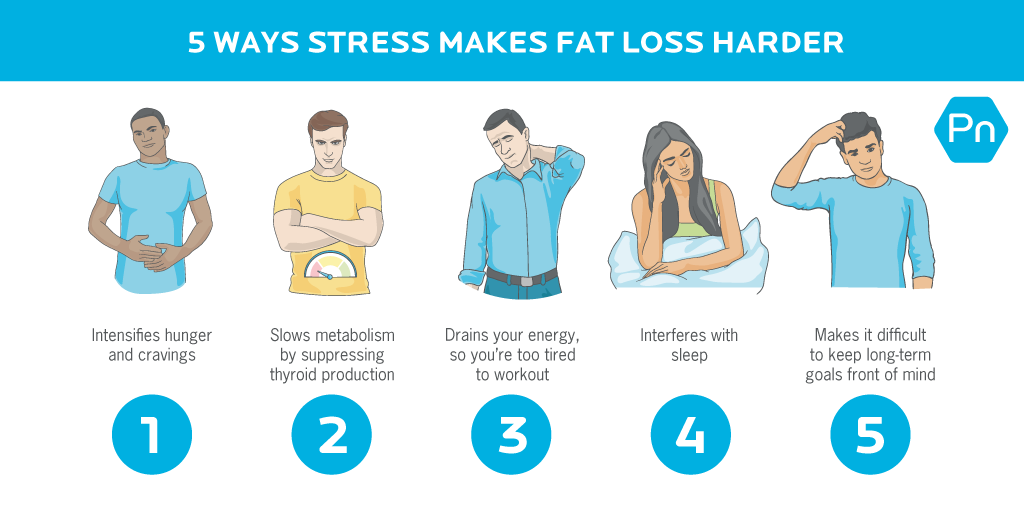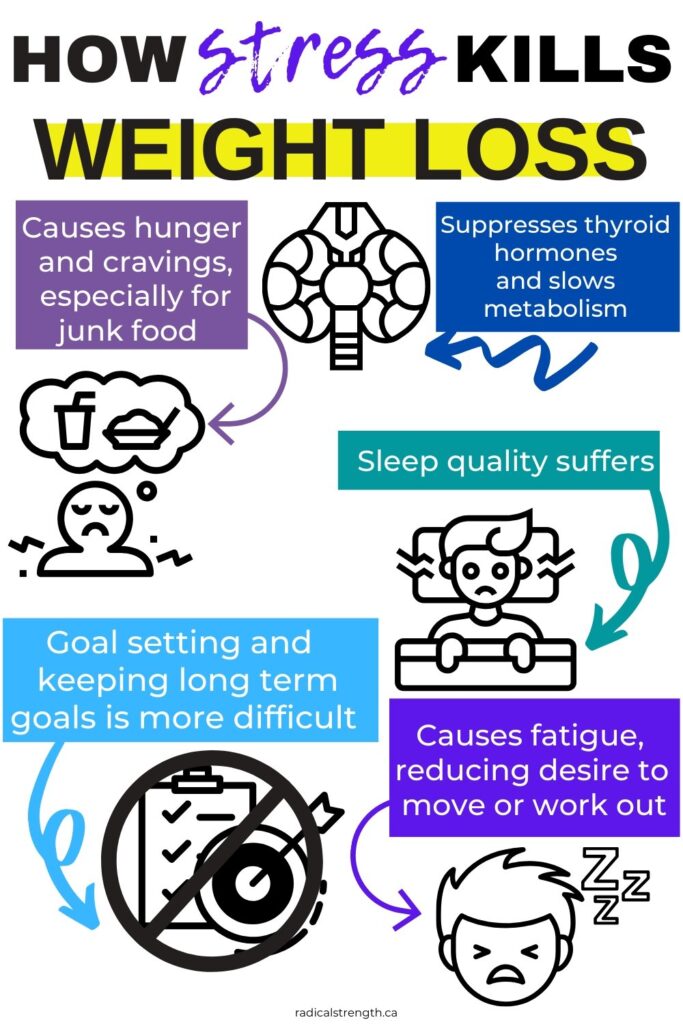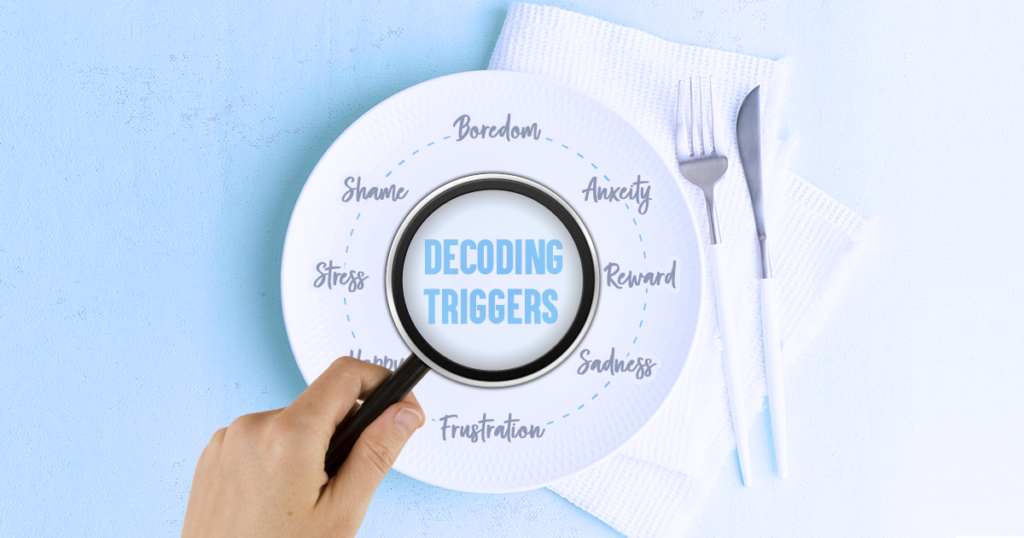Decoding Stress: Its Role In Weight Management
Are you constantly feeling stressed out? Do you find it difficult to manage your weight despite your best efforts? If so, you may be interested in learning more about the role of stress in weight management. In this article, we will explore how stress can impact your body and ultimately contribute to weight gain. By understanding the connection between stress and weight, you can take steps to manage your stress levels and improve your overall health and well-being.
Stress can have a significant impact on your body and its ability to manage weight effectively. When you’re stressed, your body releases a hormone called cortisol, often referred to as the “stress hormone.” This hormone can increase your appetite and cravings for unhealthy, high-calorie foods. Additionally, cortisol can slow down your metabolism, making it harder for your body to burn calories efficiently. As a result, you may find yourself gaining weight or struggling to lose weight, even when you’re following a healthy diet and exercise routine.
In this article, we will dive deeper into the relationship between stress and weight management and explore various strategies to reduce stress levels. By implementing these strategies, you can take control of your stress levels, improve your overall well-being, and potentially manage your weight more effectively. So if you’re curious about how stress impacts your weight and want to learn practical tips for managing stress, keep reading!

Understanding Stress
Definition of stress
Stress is a natural response that our bodies experience when we encounter demanding or challenging situations. It is the body’s way of preparing itself to deal with a perceived threat. While stress can help us perform better in certain situations, chronic or prolonged stress can have negative effects on our physical and mental well-being.
Types of stress
There are two main types of stress: acute stress and chronic stress. Acute stress is short-term and typically occurs in response to immediate challenges or threats. This type of stress can be beneficial as it helps us react quickly and effectively. On the other hand, chronic stress is long-term and occurs when we are constantly exposed to stressful situations that we cannot fully resolve or escape from.
Causes of stress
Stress can be triggered by various factors in our lives, including work-related pressures, financial difficulties, relationship problems, major life changes, and even daily hassles such as traffic or deadlines. Each individual may have different stressors, and what causes stress in one person may not necessarily have the same effect on another. It is essential to identify and understand our own personal stressors to effectively manage stress.
Effects of Stress on the Body
Stress hormones and their impact
When we experience stress, our bodies release stress hormones such as cortisol, adrenaline, and noradrenaline. These hormones help prepare the body for a fight-or-flight response, raising blood pressure, increasing heart rate, and redistributing energy to essential bodily functions. However, chronic stress can lead to prolonged exposure to these hormones, which can have damaging effects on our bodies.
Physical symptoms of stress
Stress can manifest in various physical symptoms, including headaches, muscle tension, fatigue, digestive issues, decreased immunity, and sleep disturbances. Prolonged exposure to stress can weaken the immune system, making us more susceptible to illnesses and infections. It can also lead to chronic pain conditions and contribute to the development or worsening of cardiovascular diseases.
Psychological effects of stress
In addition to its physical effects, stress can also impact our mental well-being. Chronic stress can increase the risk of developing mental health disorders such as anxiety and depression. It can also affect cognitive function, memory, and concentration. Furthermore, stress can influence our mood, leading to irritability, anger, and feelings of overwhelm.

Connection between Stress and Weight
How stress affects food cravings
Stress can have a significant impact on our eating habits and food cravings. When we experience stress, our body craves comfort foods, often high in sugar, fat, and calories. This is because these foods stimulate the brain’s reward system and temporarily make us feel better. Consuming these foods can lead to weight gain and make it challenging to maintain a healthy weight.
Impact of stress on metabolism
Chronic stress can disrupt our metabolism, the process by which our bodies convert food into energy. Stress hormones, such as cortisol, can alter metabolic pathways, leading to increased fat storage and decreased calorie burning. This can make weight loss more difficult and contribute to weight gain over time.
Stress-induced emotional eating
Many individuals turn to food as a way to cope with stress and regulate their emotions. This emotional eating can be a response to both positive and negative emotions, as food is often associated with comfort and pleasure. Stress-induced emotional eating can lead to weight gain and interfere with successful weight management efforts.
Stress and Hormonal Imbalances
Role of cortisol in weight gain
Cortisol, often referred to as the “stress hormone,” plays a crucial role in our body’s response to stress. While cortisol is essential for regulating energy, metabolism, and inflammation, excess levels of cortisol can lead to weight gain, especially in the abdominal area. This is because cortisol can increase appetite, promote fat storage, and enhance the preference for high-calorie foods.
Stress-related hormone imbalances
Chronic stress can disrupt the delicate balance of hormones in our bodies. It can lead to imbalances in hormones such as insulin, thyroid hormones, and leptin, which regulate appetite, metabolism, and energy balance. These imbalances can contribute to weight gain and make it harder to lose weight.
Effect of stress on insulin levels
Stress can affect insulin levels and how our bodies regulate blood sugar. When we are stressed, our bodies release glucose into the bloodstream for energy. However, chronic stress can lead to insulin resistance, a condition where cells become less responsive to insulin. This can cause blood sugar levels to rise, increasing the risk of developing type 2 diabetes and making it harder to control weight.

Stress Management Techniques
Meditation and mindfulness
Meditation and mindfulness techniques can help reduce stress by promoting relaxation and increasing self-awareness. These practices involve focusing on the present moment and observing thoughts and feelings without judgment. Regular meditation and mindfulness practice can enhance emotional well-being, reduce anxiety, and improve stress resilience.
Exercise as a stress reliever
Regular physical exercise has been shown to be effective in reducing stress levels. Exercise stimulates the release of endorphins, the body’s natural feel-good hormones, which can improve mood and reduce stress. Engaging in activities such as walking, running, dancing, or practicing yoga can help relieve tension and promote overall well-being.
Healthy coping strategies
Finding healthy coping mechanisms is crucial for effectively managing stress. These can include engaging in hobbies, spending time with loved ones, practicing relaxation techniques, journaling, or seeking professional support. It is essential to find strategies that work best for you and incorporate them into your daily routine.
Behavioral Changes for Weight Management
Stress reduction as a weight loss strategy
Addressing stress is a vital component of successful weight management. By reducing stress levels, we can help prevent weight gain, promote weight loss, and improve overall well-being. Incorporating stress reduction techniques into our daily lives can create a supportive environment for sustainable weight management.
Adopting healthy habits
Establishing healthy lifestyle habits is essential for both stress management and weight management. This includes adopting a balanced diet rich in fruits, vegetables, whole grains, and lean proteins. Regular physical activity is also important for maintaining a healthy weight and managing stress. Additionally, getting enough sleep and practicing good sleep hygiene can contribute to overall well-being.
Creating a balanced lifestyle
Creating a balanced lifestyle involves finding equilibrium in various aspects of life, including work, relationships, self-care, and leisure activities. Balancing responsibilities and setting realistic goals can help reduce stress and lead to a more fulfilling and sustainable weight management journey. It is important to remember that weight management is not just about the number on the scale but about overall health and well-being.

Building Resilience and Coping with Stress
Developing emotional resilience
Emotional resilience refers to our ability to adapt and bounce back from stress and adversity. Building emotional resilience involves developing coping skills, fostering a positive mindset, and practicing self-care. By enhancing our resilience, we can better manage stress and navigate the challenges that come with weight management.
Stress reduction in daily life
Incorporating stress reduction techniques into our daily lives is essential for long-term well-being. This can involve taking regular breaks, practicing deep breathing exercises, engaging in relaxation activities, and setting boundaries. By proactively managing stress on a daily basis, we can prevent it from accumulating and having a negative impact on our overall health.
Seeking support and professional help
It is important to seek support when dealing with stress and its impact on weight management. This support can come from friends, family, support groups, or healthcare professionals. Seeking professional help, such as consulting with a therapist or registered dietitian, can provide guidance and tools to effectively manage stress and achieve weight management goals.
Identifying Personal Stress Triggers
Recognizing and understanding triggers
Identifying personal stress triggers is an essential step in stress management. What may cause stress in one person may not have the same effect on another. By recognizing and understanding our individual triggers, we can develop effective strategies to cope with stress and prevent its negative impact on weight management.
Stress inventory and self-reflection
Conducting a stress inventory involves assessing the different areas of our lives that contribute to stress. This can include work, relationships, finances, and personal responsibilities. Self-reflection is also valuable in understanding our emotional responses to stress and identifying patterns or behaviors that may hinder our weight management efforts.
Creating a stress management plan
Once we have identified our personal stress triggers, conducting a stress inventory, and engaged in self-reflection, we can create a stress management plan tailored to our individual needs. This plan may include setting boundaries, practicing self-care, scheduling regular stress reduction activities, and seeking support when needed. By having a plan in place, we can better navigate stressful situations and stay on track with our weight management goals.

Mind-Body Practices for Stress Reduction
Yoga and its stress-reducing benefits
Yoga is a mind-body practice that combines physical postures, breathing exercises, meditation, and relaxation techniques. It has been shown to effectively reduce stress levels and promote overall well-being. Regular yoga practice can improve flexibility, strength, and balance while also calming the mind and reducing anxiety.
Breathing techniques for relaxation
Deep breathing exercises can quickly activate the body’s relaxation response and help reduce stress. Techniques such as diaphragmatic breathing, square breathing, and 4-7-8 breathing can be used to promote relaxation and support stress management. Practicing these breathing exercises regularly can enhance resilience to stress and improve overall well-being.
Visualization and guided imagery
Visualization and guided imagery involve using the power of the mind to create positive mental images and scenarios. These techniques can help reduce stress by promoting relaxation and shifting focus away from stressful thoughts. Visualization can be done independently or with the help of guided relaxation audios or scripts.
Nutrition and Stress
Foods that help reduce stress
Certain foods can help reduce stress and promote overall well-being. These include foods rich in omega-3 fatty acids, such as fatty fish, walnuts, and flaxseeds. Other stress-reducing foods include those high in antioxidants, such as fruits and vegetables, and foods that contain magnesium and B vitamins, such as whole grains, legumes, and leafy greens.
The impact of stress on nutrient absorption
Chronic stress can negatively impact nutrient absorption and utilization in the body. Stress hormones can affect digestion, leading to decreased absorption of essential nutrients such as vitamins and minerals. This can result in nutritional deficiencies that may hinder weight management efforts and overall health.
Creating a stress-reducing diet
Adopting a stress-reducing diet involves incorporating foods that support stress management and overall well-being. This includes a balanced intake of lean proteins, whole grains, fruits, vegetables, and healthy fats. It is also important to limit the consumption of caffeine, alcohol, refined sugars, and processed foods, as these can exacerbate stress levels and interfere with weight management goals.
Sleep and Stress Management
Effects of stress on sleep quality
Stress can significantly impact sleep quality and duration. Persistent worrying, racing thoughts, and increased physical tension can make it difficult to fall asleep and stay asleep. Lack of quality sleep further exacerbates stress levels, creating a vicious cycle. It is crucial to prioritize sleep as part of stress management and weight management efforts.
Sleep hygiene practices
Practicing good sleep hygiene can help improve sleep quality and reduce stress. This includes establishing a regular sleep schedule, creating a calming bedtime routine, optimizing the sleep environment, limiting exposure to electronics before bed, and avoiding stimulants such as caffeine and nicotine close to bedtime. By implementing these practices, we can enhance sleep and support overall well-being.
Creating a relaxing bedtime routine
Creating a relaxing bedtime routine can signal to the body that it is time to unwind and prepare for sleep. This routine may include activities such as reading, taking a warm bath, practicing relaxation techniques, or listening to calming music. By consistently engaging in a relaxing bedtime routine, we can promote a sense of calmness and improve sleep quality.
Stress in Different Stages of Weight Management
Stress during weight loss efforts
Weight loss efforts can be accompanied by additional stressors, such as dietary restrictions and increased physical activity. This added stress can impact progress, motivation, and adherence to weight management plans. It is important to address and effectively manage stress during weight loss to ensure long-term success.
Stress maintenance after reaching weight goals
Once weight loss goals have been achieved, there may be added stress in maintaining the results. Fear of weight regain, body image concerns, and social pressures can contribute to stress levels. Adopting healthy habits, practicing stress management techniques, and seeking support can help manage stress during the maintenance phase.
Coping with stress-related setbacks
Stress-related setbacks are a common part of the weight management journey. These setbacks can include emotional eating episodes, weight fluctuations, or periods of increased stress. It is important to practice self-compassion, reevaluate goals if necessary, and implement stress management strategies to overcome setbacks and continue progressing towards long-term well-being.
Holistic Approaches to Stress Relief
Holistic therapies for stress management
Holistic therapies focus on treating the whole person, considering physical, mental, emotional, and spiritual well-being. These therapies can include acupuncture, massage therapy, aromatherapy, and herbal supplements. Incorporating holistic approaches into stress management can support overall wellness and complement other stress reduction techniques.
Combining various techniques for optimal results
Combining various stress reduction techniques can enhance their effectiveness. For example, combining mindfulness meditation with regular physical activity or practicing breathing techniques alongside Yoga can create a synergistic effect. It is important to find a combination of techniques that resonate with you and fit into your lifestyle to optimize stress reduction and weight management efforts.
Adopting a holistic lifestyle for long-term well-being
Adopting a holistic lifestyle involves integrating various elements of well-being into daily life. This includes prioritizing self-care, managing stress, nurturing relationships, engaging in regular physical activity, and making mindful food choices. By embracing a holistic approach to health, we can promote long-term well-being and sustain healthy weight management.
Conclusion
Understanding the impact of stress on weight management is essential for successfully achieving and maintaining a healthy weight. Chronic stress can disrupt hormonal balance, affect food cravings, and hinder metabolism, making weight management more challenging. Through effective stress management techniques, including mindfulness, exercise, and healthy coping strategies, we can reduce stress levels and promote overall well-being. By incorporating positive lifestyle changes, building resilience, and seeking support when needed, we can achieve a balanced and fulfilling life while managing stress and achieving our weight management goals. Remember, weight management is not just about the numbers; it’s about achieving overall wellness through stress reduction.

